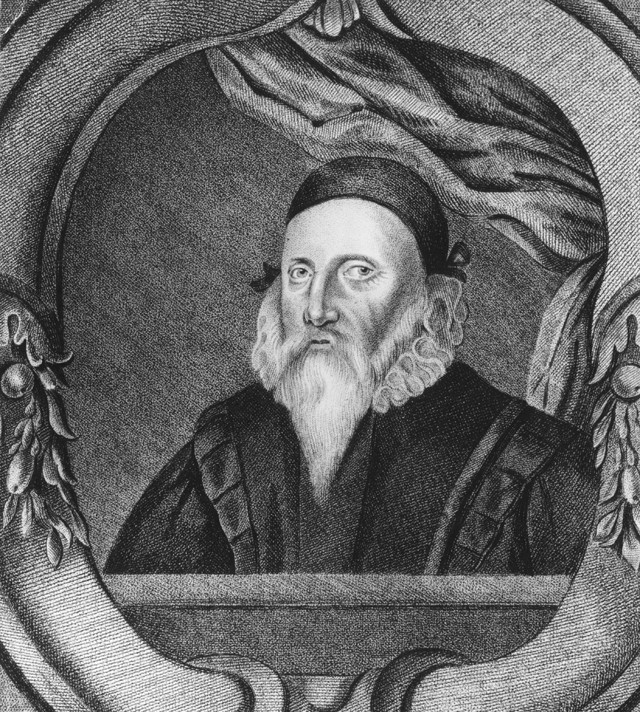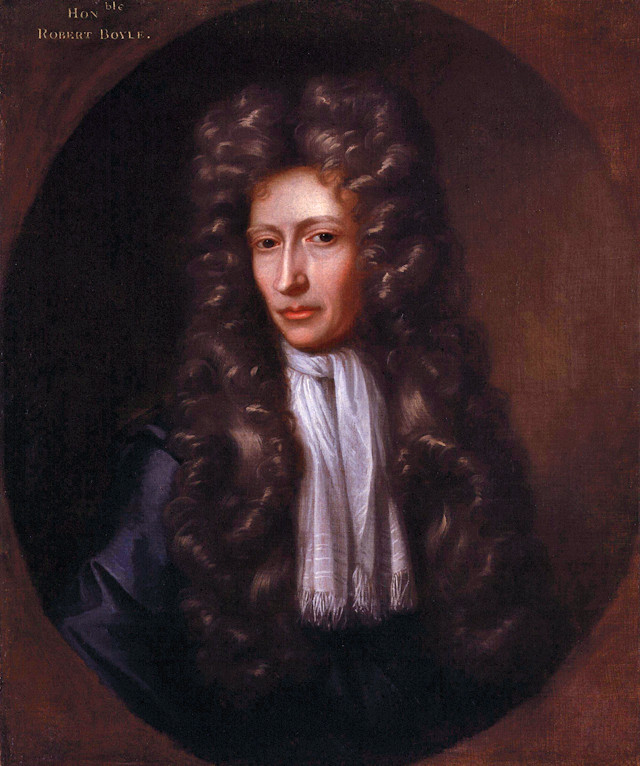
by Carolyn Gramling Monday, October 26, 2015

Many philosophers, scientists and clerics were also alchemists, including Sir Isaac Newton and English astrologer and mathematician John Dee (right). Credit: ©iStockphoto.com/HultonArchive.
Alchemy, in both ancient and medieval times, wasn’t just about turning lead into gold, although such “transmutation” was certainly one desirable goal. In a broader sense, alchemists were both philosophers and the precursors to modern chemists, in that they sought to understand the different states of matter, the interactions of metals, and the way in which elements were created from the original chaos. There were thought to be four elements — earth, air, fire and water — and combining them properly could produce any substance on Earth, from medicines to gold. Among the more lofty ambitions of alchemists was the search for the fabled Philosopher’s Stone, a substance that was supposed to enable the transmutation of one substance into another (and perhaps act as an elixir of life).
By medieval times, the practice of alchemy already had deep roots, extending thousands of years back to a range of ancient cultures, from Greece to China to Egypt. It took hold in Europe in the 12th century, when monks began to translate Arabic texts into Latin.
Medieval alchemists never managed to generate gold or discover a life-giving elixir, but they did have some more modest successes: The cleric Albertus Magnus isolated pure arsenic from orpiment (arsenic sulfide) in 1250 by heating the ore and adding soap. Seven years later, philosopher and Franciscan friar Roger Bacon described the process to make gunpowder from a mix of sulfur, charcoal and potassium nitrate (a mixture originally discovered about 400 years earlier by Chinese inventors). Other alchemists produced hydrochloric acid, nitric acid, potash (potassium carbonate) and sodium carbonate. Others identified elements such as antimony and bismuth, and began to develop early laboratory procedures. Many of these early alchemists were clerics, but the Catholic Church eventually condemned the practice, viewing the secrecy surrounding many of the studies with deep suspicion and rejecting the ties of some of its practitioners to the occult.
Then in the early 15th century, the King of England decided that alchemy posed a more material threat and took action. King Henry IV, who had usurped the throne from Richard II in 1399 (and who was later afflicted with a skin disease, possibly leprosy, which some saw as divine retribution for his treachery), was constantly defending against rebellious plots and assassination attempts. In this unstable climate, he was anxious to preserve the power of his throne — including its coin. And alchemists generating gold and silver might produce riches that could devalue the official currency or finance the king’s enemies.
So, in 1404, Parliament passed a statute called the Act Against Multipliers, making alchemy — or more specifically, the multiplication of gold and silver via alchemy — illegal: “None from henceforth shall use to multiply gold or silver, or use the craft of multiplication; and if any the same do, he shall incur the pain of felony.”
But this statute was hardly the end of alchemy. Barely four decades later, in 1440, Henry IV’s grandson, Henry VI, needed money following a series of costly wars. Hoping to refill his empty coffers, he began to issue special licenses to alchemy practitioners to circumvent the statute, encouraging those he favored to, among other things, seek the Philosopher’s Stone.
By the end of the 15th century, the practice of alchemy was again flourishing in England as well as in the rest of Europe. In the early 16th century, the Swiss metallurgist and alchemist Paracelsus, also called Theophrastus Phillippus Aureolus Bombastus von Hohenheim, conceived the controversial idea that matter consists of three fundamental principles — mercury (water), sulfur (fire) and salt (earth). Paracelsus was also a physician, however, and he applied his metallurgical knowledge and experimental zeal to medicine, connecting goiters with minerals in drinking water and miners’ disease (silicosis) with the inhalation of metals, as well as prescribing mercury compounds to treat syphilis.

In 1689, the "father of modern chemistry," Robert Boyle, argued successfully for the repeal of the nearly 300-year-old English law prohibiting alchemy. Credit: National Portrait Gallery, London.
Over the next century or two, other well-respected minds, including Sir Isaac Newton, German philosopher and mathematician Gottfried Wilhelm Leibniz and philosopher John Locke, expressed a deep interest in alchemy and the notion of transmutation (Newton spent 30 years searching for the Philosopher’s Stone).
Philosopher, inventor and “father of modern chemistry” Robert Boyle — perhaps best known to modern chemistry students as the author of Boyle’s law, which defines the relationship between pressure and volume for an ideal gas at a fixed temperature — also carried out his own alchemy experiments. Although Boyle rejected Paracelsus’ three-principle theory in favor of an “atomic theory” in which substances are composed of indivisible substances called “elements,” he, like Newton, was interested in transmutation and hoped to find the Philosopher’s Stone. In about 1678, Boyle wrote that he believed not only that base metals such as tin and lead could be transmuted into gold, but also that the Philosopher’s Stone could invoke angels — not an uncommon belief among alchemists at the time. (Much later, chemists determined that gold is itself an element, and therefore cannot be created from any other substance.)
In 1689, Boyle argued for the official repeal of Henry IV’s act against multiplying gold and silver, arguing that the act impeded important research. Boyle’s effort was ultimately successful, resulting in the Mines Royal Act of 1689. Shortly after Boyle’s death in 1691, his confidant and colleague Newton wrote in a letter to John Locke that Boyle may have had added motivation to repeal the 1404 law: Boyle’s papers left hints that he may have thought he had finally discovered a recipe for alchemically producing gold.
© 2008-2021. All rights reserved. Any copying, redistribution or retransmission of any of the contents of this service without the expressed written permission of the American Geosciences Institute is expressly prohibited. Click here for all copyright requests.